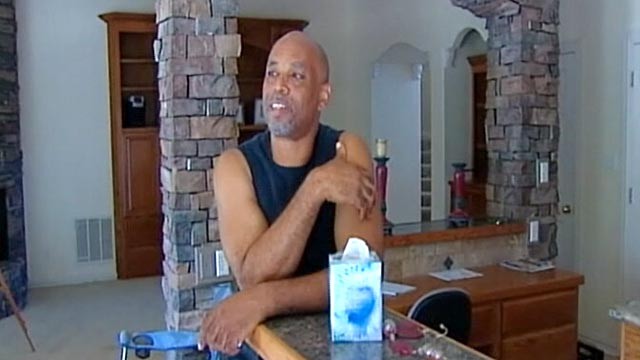Kenneth Robinson lived in a "McMansion" in Texas for several months through a legal loophole, paying only $16.

After the time requirement is satisfied, the Robinsons of the world have the opportunity to claim clear title to the property. In the meantime, the original property owner could fight the action, but it would be costly. And since the house has already been abandoned, it's not likely the original owner would wage an expensive legal battle to get it back. The mortgage holder would have to fight a court action too.
The growing number of abandoned homes brought on by the foreclosure crisis has produced a small buzz around the idea of adverse possession.
A spokesman for the National Association of Realtors, however, said adverse possession was not common nor on the association's radar screen.
But a quick Google search, however, turned up plenty of websites willing to show anyone how to do what Ken Robinson did.
At AdversePossession.com, for example, for a mere $39.95, "average people" can learn how to "acquire valuable real estate for free." The site takes steps to assure potential Robinsons that adverse possession is not squatting. "Squatter," says the site, "is an unfortunate and negative term used to describe someone who unlawfully occupies a vacant property or other real estate." Nor is occupying abandoned homes for financial gain immoral, according to the site. It's "doing the neighborhood a favor."
Robinson's former neighbors saw the situation differently. After he first moved in, they told local reporters that "If he [Robinson] wants the house, buy the house like everyone else had to. ..."
And Ferrara said, "it's quite an un-American notion that someone can take another's property without paying for it. ... After all, even the government has to pay for your property if it decides to take it from you."
David DeCosse, the director of campus ethics programs at the Markkulla Center for Applied Ethics at Santa Clara University, said that even though Robinson may have a right to do what he's doing, it's not necessarily the right thing to do.
Some of the great moral thinkers such as Thomas Aquinas, said DeCosse, would argue that in the case of an extreme emergency, it would be OK to do something like take food from a grocery store because food is meant to support and address human needs. So stealing would be OK in certain circumstances. But if there is no emergency, "it offends our moral sensibilities," said DeCosse. "What may be legally permissible is not necessarily ethically right."